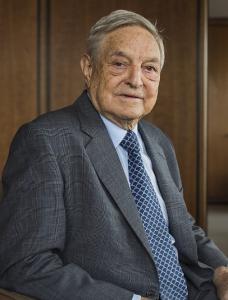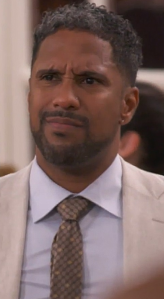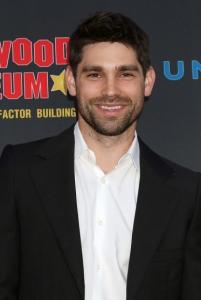George Soros is a Hungarian-American businessman and philanthropist. Soros survived the Nazi occupation of Hungary and later moved to the United Kingdom, where he studied philosophy at the London School of Economics. He began his career in merchant banks and went on to establish his hedge fund, Quantum Fund, which became highly successful. Soros gained fame for "breaking the Bank of England" by making a billion-dollar profit from short-selling the pound sterling during the 1992 Black Wednesday crisis. He is also known for his General Theory of Reflexivity, which provides insights into capital markets and asset bubbles. As of March 2021, he had a net worth of $8.6 billion and has donated over $32 billion to the Open Society Foundations, making him one of the most generous philanthropists in terms of percentage of net worth. Soros is an active supporter of progressive and liberal political causes, donating billions to various philanthropic efforts. His donations have had a significant impact on reducing poverty, increasing transparency, and supporting education around the world. He played a notable role in the fall of communism in Eastern Europe and established the Central European University in Budapest. However, Soros's political involvement has made him a target of conspiracy theories, particularly from European nationalists and certain factions within the Republican Party in the United States. These false claims often exhibit anti-Semitic undertones due to Soros's Jewish heritage.
George Soros Early Life & Family
George Soros, born on August 12th, 1930, is currently 92 years old as of 2022. Originally named György Schwartz, he was born in Budapest, Hungary, into a prosperous Jewish family who, like many of their social class, felt ambivalent about their Jewish heritage. Soros has humorously referred to his upbringing as a "Jewish antisemitic home." He is Hungarian when it comes to his nationality while his ethnicity is Hugarian-White. His mother, Erzsébet (Elizabeth), ran a successful silk store, while his father, Tivadar (Teodoro Ŝvarc), was a lawyer and a well-known author of Esperanto literature, having edited the Esperanto literary magazine, Literatura Mondo. Tivadar had been a prisoner of war during and after World War I until he escaped from Russia and rejoined his family in Budapest. The couple married in 1924 and in 1936, the family changed their name from the German-Jewish "Schwartz" to "Soros" as a protective measure in an increasingly antisemitic Hungary. Tivadar favored the new name due to its palindrome nature and its meanings: "next in line" or "designated successor" in Hungarian and "will soar" in Esperanto. George Soros's older brother, Paul Soros, who was an engineer, private investor, and philanthropist, passed away on June 15, 2013. Paul was the head of Soros Associates and established the Paul and Daisy Soros Fellowships for Young Americans.
At the age of 13 in March 1944, when Hungary was occupied by Nazi Germany, Soros, and other Jewish children were barred from attending school and were compelled to report to the Judenrat, the Jewish Council established during the occupation. Soros was assigned the task of delivering deportation notices, and his father instructed him to inform the recipients that they would be deported if they reported. Although Soros wasn't certain of the extent of their fate, he carried out his father's instructions. The family survived the war by purchasing documents attesting that they were Christians. At the age of 14, Soros posed as the Christian godson of a Hungarian government official, aiding in the confiscation of property from Jewish families. His father, Tivadar, saved numerous Hungarian Jews, including their own family. Soros considered 1944 the happiest year of his life as he witnessed his father's heroism. After surviving the Siege of Budapest in 1945, Soros and his mother sought refuge with the Brandeis family, attending their Lutheran church. At 17, Soros moved to Paris before settling in England, where he studied philosophy at the London School of Economics. Despite his aspiration to become a professor, he worked for an investment firm in London due to his grades not meeting the requirement for an academic career.
George Soror Career
- During a 2006 discussion at the Los Angeles World Affairs Council, Alvin Shuster asked George Soros how he went from being an immigrant to a financier and how he realized he could make money. Soros replied that he tried various jobs and eventually realized that he wasn't cut out for selling fancy goods in souvenir shops. He then wrote to every managing director in every merchant bank in London, receiving only a few replies, and eventually landed a job in a merchant bank.
- Soros started his financial career at Singer & Friedlander of London in 1954. Later, he moved to the arbitrage department and was suggested by a colleague to apply at F.M. Mayer of New York, which was owned by his colleague's father.
- Soros became an arbitrage trader for F.M. Mayer in 1956 and focused on European stocks popular with U.S. institutional investors after the Coal and Steel Community formation.
- Soros joined Wertheim & Co. in 1959, intending to work for five years to save enough money to study philosophy in England. He worked as a European securities analyst until 1963 and during this time, he developed the theory of reflexivity based on the ideas of his tutor at the London School of Economics, Karl Popper. Soros believed that market values were driven by participants' fallible ideas rather than economic fundamentals, leading to "virtuous" or "vicious" cycles of boom and bust. This contradicts the equilibrium predictions of standard neoclassical economics.
- Between 1963 and 1973, Soros had little enthusiasm for his vice president role at Arnhold and S. Bleichroeder due to the introduction of the Interest Equalization Tax that resulted in slow business for his European trading. During this time, he revised his philosophy dissertation and in 1966, started a fund with $100,000 of the firm's money to experiment with trading strategies. In 1969, he set up the Double Eagle hedge fund with $4m of investors' capital including $250,000 of his own money. Double Eagle was an offshoot of Arnhold and S. Bleichroeder's First Eagle fund established by Soros and that firm's chairman Henry H. Arnhold in 1967. The Double Eagle Fund had $12 million in 1973, which formed the basis of the Soros Fund, with Soros and Jim Rogers receiving returns on their share of capital and 20 percent of the profits each year.
- In 1970, George Soros founded Soros Fund Management and became its chairman. He resigned from the management of the Double Eagle Fund in 1973 and established the Soros Fund. Later, it was renamed the Quantum Fund and grew to $12m by that time. By 1981, the fund had grown to $400m, but a 22% loss in that year and substantial redemptions by some of the investors reduced it to $200m. In 2013, the Quantum Fund made $5.5 billion, making it again the most successful hedge fund in history. Since its inception in 1973, the fund has generated $40 billion. The fund announced in 2015 that it would inject $300 million to help finance the expansion of Fen Hotels, an Argentine hotel company.
- Soros built a massive short position in pounds sterling before Black Wednesday in September 1992, profiting from the UK's unfavorable position in the European Exchange Rate Mechanism. His fund sold over $10 billion in pounds and made a profit of over $1 billion when the UK withdrew from the mechanism and devalued the pound. Soros was also accused by the Malaysian prime minister of using his wealth to orchestrate the Asian financial crisis in 1997, but Soros denied the accusations. Economist Paul Krugman criticized Soros's effect on financial markets, and Soros founded the Institute for New Economic Thinking in 2009 to investigate new approaches to organizing the international economic and financial system in response to the late-2000s recession.
- In 1988, Soros was asked to join an effort to buy shares in Société Générale but chose to buy shares in four French companies instead. In 1989, an investigation found him innocent of insider trading but the case was reopened and he was eventually convicted in 2006, although the penalty was reduced. Soros denied wrongdoing and appealed to the European Court of Human Rights, but his appeal was rejected in 2011.
- Soros was not a big donor to US political campaigns until the 2004 presidential election, during which he gave $23,581,000 to various 527 groups aimed at defeating President George W. Bush. After Bush's reelection, Soros and other donors created Democracy Alliance, a political fundraising group supporting progressive causes. Soros also donated to various organizations, including $35 million to underprivileged children in New York and the Center for American Progress. He donated millions of dollars to super PACs supporting Democratic candidates, including $1 million to Priorities USA Action in 2012 and $128.5 million to the Democratic Party for the 2022 US elections. Soros also donated to progressive criminal justice reform proponents through the Safety and Justice PAC.
- George Soros, a billionaire philanthropist and advocate of open societies, has funded numerous pro-democracy programs in Eastern Europe and newly independent countries, including grants to over 28,000 scientists in former Soviet republics. However, his involvement has been met with controversy and opposition, with some countries banning his initiatives and accusing him of meddling in their internal affairs. In Hungary, the government has labeled him an enemy of the state, and his Open Society Foundations moved its office from Budapest to Berlin in 2018 due to an "increasingly repressive" environment. Soros supported Kosovo's independence in 2005 and has provided funding for the non-profit organization Independent Diplomat.
- Soros has donated money to support drug policy reform efforts globally. He donated $400,000 to help decriminalize possession of small amounts of marijuana in Massachusetts and has also supported similar measures in other US states. He has given funding to drug decriminalization groups such as the Lindesmith Center and Drug Policy Foundation. Soros donated $1 million to support California's Proposition 19 in 2010. He believes that marijuana is less addictive than other drugs, but should not be used by children or students, and has not used marijuana himself for years. Soros is a major financier of the Drug Policy Alliance, which advocates for cannabis legalization.
- The Open Society Institute's Project on Death in America was active from 1994 to 2003, aiming to change the culture and experience of dying and bereavement. Soros supported the right-to-die advocacy organization Hemlock Society and offered to assist his mother in ending her life. He also funded the advertising campaign for the Oregon Death with Dignity Act.
- George Soros is a renowned businessman, investor, and philanthropist who has authored or co-authored several books on topics ranging from financial markets, globalization, and democracy to the European Union and the war on terror. His works include "The Tragedy of the European Union: Disintegration or Revival?," "Financial Turmoil in Europe and the United States: Essays," "The New Paradigm for Financial Markets: The Credit Crisis of 2008 and What it Means," "The Age of Fallibility: Consequences of the War on Terror," "Underwriting Democracy: Encouraging Free Enterprise and Democratic Reform Among the Soviets and in Eastern Europe," and "The Bubble of American Supremacy: Correcting the Misuse of American Power." Soros is also the author of "Open Society: Reforming Global Capitalism," "The Crisis of Global Capitalism: Open Society Endangered," and "Soros on Soros: Staying Ahead of the Curve," among others. His publications demonstrate his wide-ranging interests and his commitment to promoting social justice and human rights. He has also written notable op-eds for publications such as The Wall Street Journal, The New York Review of Books, and The Atlantic, where he has discussed a range of issues including the legalization of marijuana, the euro crisis, American foreign policy, and the capitalist threat. Soros has also been a vocal critic of the policies of the George W. Bush and Trump administrations, as well as the Brexit movement, and has used his wealth to support progressive causes such as democratic reform, human rights, and drug policy reform. Soros delivered a half-hour Opinions television lecture on Channel 4 in 1993, which was published the next day as "Why Appeasement Must Not Have Another Chance" in The Times.
George Soros Awards and Achievements
- George Soros received honorary doctoral degrees from the New School for Social Research (New York), the University of Oxford in 1980, the Corvinus University of Budapest, and Yale University in 1991. He received an honorary degree in economics from the University of Bologna in 1995.
- In 2008, Soros was inducted into Institutional Investors Alpha's Hedge Fund Manager Hall of Fame along with Alfred Jones, Bruce Kovner, David Swensen, Jack Nash, James Simons, Julian Roberston, Kenneth Griffin, Leon Levy, Louis Bacon, Michael Steinhardt, Paul Tudor Jones, Seth Klarman, and Steven A. Cohen.
- In January 2014, Soros was ranked number 1 in LCH Investments list of top 20 managers having posted gains of almost $42 billion since the launch of his Quantum Endowment Fund in 1973.
- In July 2017, Soros was elected an Honorary Fellow of the British Academy (HonFBA), the United Kingdom's national humanities and social sciences academy.
- Soros was the Financial Times Person of the Year for 2018, with the FT describing him as "a standard bearer for liberal democracy, an idea under siege from populists".
- In April 2019, Soros was awarded the Ridenhour Prize for Courage. In his acceptance address Soros said: "In my native Hungary, the government of [Prime Minister] Viktor Orbán has turned me into the supervillain of an alleged plot to destroy the supposed Christian identity of the Hungarian nation... [I] donate the prize money associated with this award to the Hungarian Spectrum, an online English-language publication that provides daily updates on Hungarian politics. It renders an important service by exposing to the world [in English] what Prime Minister Viktor Orbán is telling his own people [in Hungarian]. It [Hungarian Spectrum] deserves to be better known and supported."
- As of 2022, Soros owned homes on Fifth Avenue in Manhattan, in The Hamptons on Long Island, and in Katonah, New York, within Westchester County.
George Soros Net Worth
George Soros is a highly successful businessman whose estimated net worth is $8.5 billion as of 2023. He amassed his wealth through his business career and is known for his lavish lifestyle. However, he is also renowned for his philanthropic activities. Soros has donated 64% of his original fortune and distributed over $15 billion through his Open Society Foundations, an international grant-making network that supports advancing justice, education, public health, and independent media. Forbes has recognized him as the most generous giver when measured as a percentage of net worth. In 2017, Soros transferred $18 billion to the Open Society Foundations, which is considered one of the biggest transfers of wealth to a charitable organization. Soros has donated to several causes, including eradicating extreme poverty in Africa, supporting Internet infrastructure for regional Russian universities, and providing aid to villages in Africa enduring poverty. In 2020, Soros's Foundations announced plans to give $220 million in grants for racial justice groups, criminal justice reform, and civic engagement.
George Soros has been actively engaged in philanthropy since the 1970s when he started providing funds to support black students' education in apartheid South Africa and to aid dissident movements in the communist bloc. He has been particularly focused on promoting non-violent democratization in post-communist states, primarily in Central and Eastern Europe. Soros's philanthropic endeavors are mainly carried out through the Open Society Foundations and national Soros Foundations. These foundations have different names in different countries, such as the Stefan Batory Foundation in Poland. According to PBS, as of 2003, Soros had given away a total of $4 billion, while the Open Society Foundations claim to have spent around $500 million annually in recent years.
George Soros Wife & Children
George Soros is a married man who tied the knot with his girlfriend-turned-wife, Tamiko Bolton on September 21, 2013. The couple first met in 2008 and is currently enjoying their life together. Previously, Soros was married twice. His first marriage was to Annaliese Witschak in 1960, and they had three children, Robert Daniel Soros, Andrea Soros Colombel, and Jonathan Tivadar Soros. The couple divorced in 1983, and Soros went on to marry American historian Susan Weber in 1983. They have two sons, Alexander Soros and Gregory James Soros. Soros was also in a relationship with Brazilian actor and entrepreneur Adriana Ferreyr from 2006 to 2011.
Robert Daniel Soros is the founder of the Central European University in Budapest and a network of foundations in Eastern Europe. Andrea Soros Colombel is the founder and president of Trace Foundation and a founding partner and member of the board of directors of the Acumen Fund. Jonathan Tivadar Soros is a hedge fund manager and political donor who co-founded Friends of Democracy, a super PAC dedicated to reducing the influence of money in politics. Alexander Soros is known for his philanthropic efforts on "progressive causes that might not have widespread support," while Gregory James Soros is an artist.
George Soros Height & Weight
George Soros, a Hungarian-American billionaire investor, and philanthropist, still looks handsome even at the age of 92. He has an average build with a height of 5 feet 11 inches (180.5 cm) and weighs around 70 kg (154.5 lbs). He has gray hair and distinctive deep-set blue eyes that add to his attractive appearance. Despite his age, he still maintains a well-groomed and refined look, befitting his status as a prominent figure in the world of finance and philanthropy. He has got a healthy body as of now.






